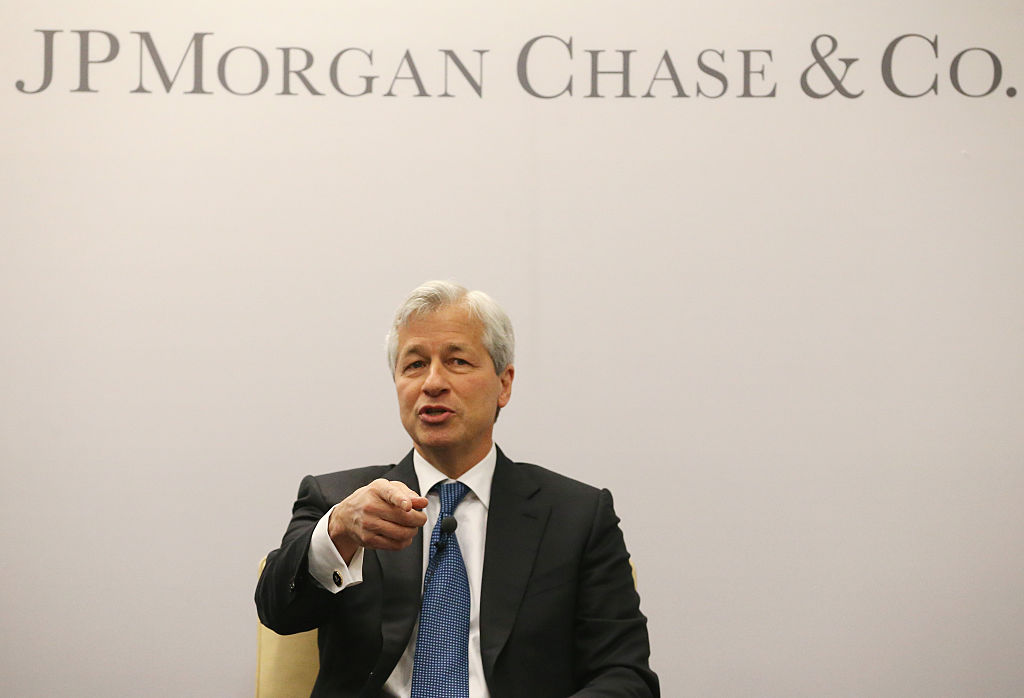U.S. regulators reportedly set to reject 'living wills' of several too-big-to-fail banks


A free daily email with the biggest news stories of the day – and the best features from TheWeek.com
You are now subscribed
Your newsletter sign-up was successful
As early as this week, the Federal Reserve and FDIC will inform at least half of the U.S. banks deemed systemically important that their "living wills" are inadequate to assure an orderly bankruptcy without a taxpayer bailout, The Wall Street Journal reports, citing "people familiar with the matter." It isn't clear how the dissolution plans of the four banks — J.P. Morgan Chase, Bank of New York Mellon, State Street, and Bank of America — fall short, or how much change is needed to satisfy regulators that the banks aren't "too big to fail." Citigroup is expected to get the green light, The Journal said, and the status of the living wills at Goldman Sachs, Morgan Stanley, and Wells Fargo are not known.
The systemically important U.S. banks had to file their living wills under the 2010 Dodd-Frank financial reform law, and the Fed and FDIC gave general public feedback — most of it negative — in 2014. The banks refiled their plans in 2015, and this round of public feedback will likely be specific and detailed about each bank, The Journal says. The firms whose wills are rejected will have a chance to resubmit them, perhaps in a year, and if they are still found lacking, the regulators could sanction the banks by, for example, raising their capital requirements, which can lower profitability. After two years of sanctions, regulators can force banks to sell off assets. All of the banks have told regulators they believe their living wills are credible.
A free daily email with the biggest news stories of the day – and the best features from TheWeek.com
The Week
Escape your echo chamber. Get the facts behind the news, plus analysis from multiple perspectives.

Sign up for The Week's Free Newsletters
From our morning news briefing to a weekly Good News Newsletter, get the best of The Week delivered directly to your inbox.
From our morning news briefing to a weekly Good News Newsletter, get the best of The Week delivered directly to your inbox.
Peter has worked as a news and culture writer and editor at The Week since the site's launch in 2008. He covers politics, world affairs, religion and cultural currents. His journalism career began as a copy editor at a financial newswire and has included editorial positions at The New York Times Magazine, Facts on File, and Oregon State University.
-
 Switzerland could vote to cap its population
Switzerland could vote to cap its populationUnder the Radar Swiss People’s Party proposes referendum on radical anti-immigration measure to limit residents to 10 million
-
 Political cartoons for February 15
Political cartoons for February 15Cartoons Sunday's political cartoons include political ventriloquism, Europe in the middle, and more
-
 The broken water companies failing England and Wales
The broken water companies failing England and WalesExplainer With rising bills, deteriorating river health and a lack of investment, regulators face an uphill battle to stabilise the industry
-
 TikTok secures deal to remain in US
TikTok secures deal to remain in USSpeed Read ByteDance will form a US version of the popular video-sharing platform
-
 Unemployment rate ticks up amid fall job losses
Unemployment rate ticks up amid fall job lossesSpeed Read Data released by the Commerce Department indicates ‘one of the weakest American labor markets in years’
-
 US mints final penny after 232-year run
US mints final penny after 232-year runSpeed Read Production of the one-cent coin has ended
-
 Warner Bros. explores sale amid Paramount bids
Warner Bros. explores sale amid Paramount bidsSpeed Read The media giant, home to HBO and DC Studios, has received interest from multiple buying parties
-
 Gold tops $4K per ounce, signaling financial unease
Gold tops $4K per ounce, signaling financial uneaseSpeed Read Investors are worried about President Donald Trump’s trade war
-
 Electronic Arts to go private in record $55B deal
Electronic Arts to go private in record $55B dealspeed read The video game giant is behind ‘The Sims’ and ‘Madden NFL’
-
 New York court tosses Trump's $500M fraud fine
New York court tosses Trump's $500M fraud fineSpeed Read A divided appeals court threw out a hefty penalty against President Trump for fraudulently inflating his wealth
-
 Trump said to seek government stake in Intel
Trump said to seek government stake in IntelSpeed Read The president and Intel CEO Lip-Bu Tan reportedly discussed the proposal at a recent meeting
